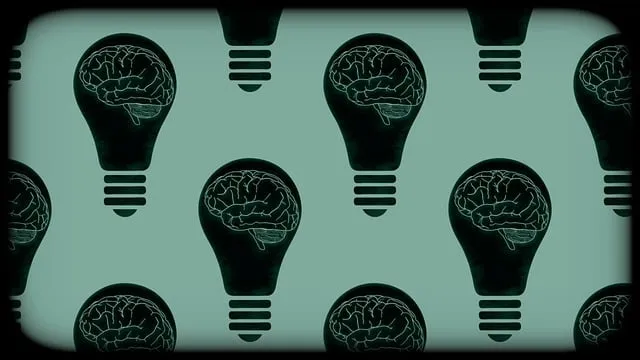The Highlands Ranch Kaiser Permanente mental health facility employs a holistic approach to emotion regulation, teaching powerful techniques to enhance emotional intelligence and overall well-being. By integrating evidence-based strategies like CBT, mindfulness, and DBT, they empower individuals to manage stress, anxiety, and depression effectively. The facility's focus on cultural competency ensures tailored care for diverse clients, while their innovative programs, such as Stress Management Workshops and ACT, promote personal growth and improved relationships, making it a leading provider in mental health care.
Emotion regulation techniques are essential tools for managing mental wellbeing, as demonstrated at the Highlands Ranch Kaiser Permanente Mental Health Facility. This article explores various strategies, from Cognitive Behavioral Therapy (CBT) to Mindfulness and Meditation, empowering individuals to navigate emotions effectively. By teaching these skills, facilities like Highlands Ranch Kaiser Permanente promote long-term emotional intelligence and resilience. We delve into popular approaches and emerging techniques, offering a comprehensive guide for those seeking to enhance their emotional control.
- Understanding Emotion Regulation: Unlocking Emotional Intelligence at Highlands Ranch Kaiser Permanente Mental Health Facility
- The Importance of Teaching Techniques: Empowering Individuals for Long-term Wellbeing
- Cognitive Behavioral Therapy (CBT): A Popular Approach to Learning and Practicing Emotion Regulation
- Mindfulness and Meditation: Cultivating Present-moment Awareness for Better Emotional Control
- Exploring Other Techniques: From Dialectical Behavior Therapy (DBT) to Acceptance and Commitment Therapy (ACT)
Understanding Emotion Regulation: Unlocking Emotional Intelligence at Highlands Ranch Kaiser Permanente Mental Health Facility

At Highlands Ranch Kaiser Permanente Mental Health Facility, emotion regulation techniques teaching plays a pivotal role in empowering individuals to navigate their emotional landscape effectively. This approach is underpinned by a deep understanding that emotional intelligence – the ability to recognize, manage, and utilize emotions – is a cornerstone of mental well-being. By integrating various evidence-based strategies, our dedicated healthcare providers facilitate self-esteem improvement and coping skills development among clients.
Through tailored interventions, Highlands Ranch Kaiser Permanente Mental Health Facility promotes cultural competency among its healthcare provider staff, ensuring sensitive and effective care for a diverse range of individuals. This holistic focus extends beyond traditional therapy, recognizing that emotion regulation is integral to overall health and can significantly impact one’s daily functioning and relationships.
The Importance of Teaching Techniques: Empowering Individuals for Long-term Wellbeing

Teaching emotion regulation techniques is a powerful tool for empowering individuals to navigate their mental health journeys with resilience and long-term wellbeing in mind. At the Highlands Ranch Kaiser Permanente mental health facility, we recognize that equipping people with effective strategies can significantly reduce symptoms of anxiety, depression, and stress, ultimately enhancing their quality of life.
These techniques go beyond mere coping mechanisms; they foster a deeper understanding of one’s emotional responses. By incorporating practices such as mindfulness, cognitive reframing, and physical grounding into daily routines, individuals gain the ability to manage intense emotions and prevent them from overwhelming their lives. This is particularly crucial in professions like healthcare where Burnout Prevention Strategies for Healthcare Providers are essential, given the demanding nature of the work. Mind Over Matter Principles offer a transformative approach, encouraging self-awareness and emotional intelligence that translates into improved relationships, decision-making, and overall mental wellness. Even simple practices like Mental Wellness Journaling Exercises can provide valuable guidance, helping individuals track their emotions, identify patterns, and reflect on progress over time.
Cognitive Behavioral Therapy (CBT): A Popular Approach to Learning and Practicing Emotion Regulation

Cognitive Behavioral Therapy (CBT) has emerged as a widely recognized and effective approach to teaching and practicing emotion regulation at the Highlands Ranch Kaiser Permanente mental health facility. This evidence-based therapy focuses on identifying and modifying negative thought patterns and behaviors that contribute to emotional distress. Through CBT, individuals learn to challenge cognitive distortions, replace them with more realistic and positive thoughts, and develop strategies to manage their emotions in stressful situations.
The Stress Management Workshops Organization often incorporates CBT techniques into its programs, targeting both personal growth and professional development for mental health professionals. By teaching positive thinking skills and risk management planning, these workshops empower individuals to navigate life’s challenges more effectively while ensuring the well-being of their clients at Highlands Ranch Kaiser Permanente and beyond.
Mindfulness and Meditation: Cultivating Present-moment Awareness for Better Emotional Control

At the Highlands Ranch Kaiser Permanente mental health facility, mindfulness and meditation are increasingly recognized as powerful tools for emotion regulation. These practices cultivate present-moment awareness, enabling individuals to better understand and manage their emotional responses. By focusing on the here and now, rather than dwelling on past experiences or worrying about the future, individuals can reduce reactive impulses and increase their ability to respond calmly to challenging situations.
Mindfulness Meditation, a specific form of this practice, involves paying attention to one’s breath, bodily sensations, and thoughts without judgment. This mental wellness journaling exercise guidance has been shown to significantly enhance emotional resilience and reduce symptoms of stress management. By regularly engaging in mindfulness practices, individuals can develop a stronger connection with their emotions, enabling them to navigate life’s ups and downs with greater equanimity and self-compassion.
Exploring Other Techniques: From Dialectical Behavior Therapy (DBT) to Acceptance and Commitment Therapy (ACT)

At the Highlands Ranch Kaiser Permanente mental health facility, exploring a variety of evidence-based techniques goes beyond traditional methods. Dialectical Behavior Therapy (DBT) offers valuable skills for managing emotions and distressing situations, focusing on mindfulness, interpersonal effectiveness, emotion regulation, and distress tolerance. This holistic approach has proven effective in treating conditions like borderline personality disorder and severe depression.
Furthermore, Acceptance and Commitment Therapy (ACT) is another powerful technique gaining traction. ACT encourages individuals to accept their feelings without judgment, fostering a sense of psychological flexibility. By focusing on values-driven action and mindfulness, this therapy aids in reducing anxiety and promoting meaningful engagement in life. Both DBT and ACT, with their emphasis on cultural sensitivity in mental healthcare practice and social skills training, offer promising avenues for emotion regulation, complementing existing care models at Highlands Ranch Kaiser Permanente.
Emotion regulation techniques, as demonstrated and taught at Highlands Ranch Kaiser Permanente Mental Health Facility, offer individuals powerful tools for long-term emotional wellbeing. By understanding emotions, leveraging evidence-based practices like CBT, and exploring diverse methods such as mindfulness and DBT, people can gain control over their mental health. These skills not only enhance daily resilience but also foster a profound sense of self-awareness and personal growth. With continued research and access to these teachings, emotion regulation is poised to revolutionize mental healthcare.






